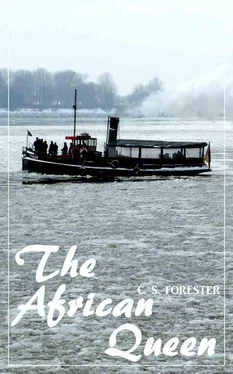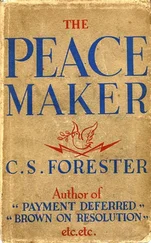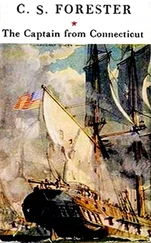Most of the technicalities fell upon deaf ears. Rose heard them without hearing. Inspiration was in full flood.
‘But all these things,’ she said, when at last Allnutt’s dissertation on torpedoes came to an end. ‘All these gyroscopes and things, they’re only to make the thing go, aren’t they?’
‘M’m. I suppose so.’
‘Well,’ said Rose with decision, at the topmost pinnacle of her inventive phase. ‘We’ve got the African Queen. If we put this—this blasting gelatine in the front of the boat, with a—what did you say—a detonator there, that would be a torpedo, wouldn’t it? Those cylinders. They could stick out over the end, with the gunpowder stuff in them, and the detonators in the tips, where those taps are. Then if we ran the boat against the side of a ship, they’d go off, just like a torpedo.’
There was almost admiration mingled with the tolerant pity with which Allnutt regarded Rose now. He had a respect for original ideas, and as far as Allnutt knew this was an original idea. He did not know that the earliest form of torpedo ever used had embodied this invention fifty years ago, although the early users of it took the precaution of attaching the explosive to a spar rigged out ahead of the launch in fashion minimizing the danger of the crew’s being hoist with its own petard. Allnutt, in fact, made this objection while developing the others which were to come.
‘Yerss,’ he said, ‘and supposing we did that. Supposing we found something we wanted to torpedo—an’ what that would be I dunno, ’cos this is the only boat on this river—and supposing we did torpedo it, what would happen to us? It would blow this ole launch and us and everything else all to Kingdom Come. You think again, miss.’
Rose thought, with an unwonted rapidity and lucidity. She was sizing up Allnutt’s mental attitude to a nicety. She knew perfectly well what it was she wanted to torpedo. As for going to Kingdom Come, as Allnutt put it with some hint of profanity, she had no objection at all. Rose sincerely believed that if she were to go to heaven she would spend eternity wearing a golden crown and singing perpetual hosannas to a harp accompaniment, and—although this appeared a little strange to her—enjoying herself immensely. And when the question was put to her point-blank by circumstances, she had to admit to herself that it appeared on the face of it that she was more likely to go to heaven than elsewhere. She had followed devoutly her brother’s teachings; she had tried to lead a Christian life; and, above all, if that life were to end as a result of an effort to help the Empire, the crown and harp would be hers for sure.
But at the same time she knew that no certainty of a crown and harp would induce Allnutt to risk his life, even if there was the faintest possibility of his end counterbalancing his earlier sins—a matter on which Rose felt uncertainty. To obtain his necessary cooperation she would have to employ guile. She employed it as if she had done nothing else all her life.
‘I wasn’t thinking,’ she said, ‘that we should be in the launch. Couldn’t we get everything ready, and have a—what do you call it?—a good head of steam up, and then just point the launch towards the ship and send her off. Wouldn’t that do?’
Allnutt tried to keep his amusement out of sight. He felt it would be useless to point out to this woman all the flaws in the scheme, the fact that the African Queen’s boiler was long past the days when it could take a ‘good head of steam’, and that her propeller, like all single propellers, had a tendency to drive the boat round in a curve so that taking aim would be a matter of chance, and that the African Queen’s four knots would be quite insufficient to allow her approach to take any ship by surprise. There wasn’t anything to torpedo, anyway, so nothing could come of this woman’s hare-brained suggestions. He might as well try to humour her.
‘That might work,’ he said, gravely.
‘And these cylinders would do all right for torpedoes?’
‘I think so, miss. They’re good an’ thick to stand pressure. I could let the gas out of ’em, an’ fill ’em up with the gelignite. I could fix up a detonator all right. Revolver cartridge would do.’
Allnutt warmed to his subject, his imagination expanding as he let himself go.
‘We could cut ’oles in the bows of the launch, and ’ave the cylinders sticking out through them so as to get the explosion as near the water as possible. Fix ’em down tight wiv battens. It might do the trick, miss.’
‘All right,’ said Rose. ‘We’ll go down to the Lake and torpedo the Louisa.’
‘Don’t talk silly, miss. You can’t do that. Honest you can’t. I told you before. We can’t get down the river.’
‘Spengler did.’
‘In a canoe, miss, wiv—’
‘That just shows we can, too.’
Allnutt sighed ostentatiously. He knew perfectly well that there was no possible chance of inducing the African Queen to make the descent of the rapids of the Ulanga. He appreciated, in a way Rose could not, the difference between a handy canoe with half a dozen skilled paddlers and a clumsy launch like the African Queen. He knew, even if Rose did not, the terrific strength and terrifying appearance of water running at high speed.
Yet on the other hand Rose represented—constituted, in fact—public opinion. Allnutt might be ready to admit to himself that he was a coward, that he would not lift a hand for England, but he was not ready to tell the world so. Also, although Allnutt had played lone hands occasionally in his life, they were not to his liking. Sooner than plan or work for himself he preferred to be guided—or driven. He was not avid for responsibility. He was glad to hand over leadership to those who desired it, even to the ugly sister of a deceased despised missionary. He had arrived in Central Africa as a result of his habit of drifting, when all was said and done.
That was one side of the picture. On the other, Rose’s scheme appeared to him to be a lunatic’s dream. He had not the least belief in their ability to descend the Ulanga, and no greater belief in the possibility of torpedoing the Königin Luise. The one part of the scheme which appeared to him to rest on the slightest foundation of reality was that concerned with the making of the torpedoes. He could rely on himself to make detonators capable of going off, and he was quite sure that a couple of gas cylinders full of high explosive would do all the damage one could desire; but as there did not appear the remotest chance of using them he did not allow his thoughts to dwell long on the subject.
What he expected was that after one or two experiences of minor rapids, the sight of a major one might bring the woman to her senses so that they could settle down in comfortable quiescence and wait—as he wished—for something else to turn up. Failing that, he hoped for an unspectacular and safe shipwreck which would solve the problem for them. Or the extremely unreliable machinery of the African Queen might give way irreparably or even—happy thought—might be induced to do so. And anyway, there were two hundred miles of comfortable river ahead before the rapids began, and Allnutt’s temperament was such that anything a week off was hardly worth worrying about.
‘ ’Ave it yer own wye, then, miss,’ he said resignedly. ‘Only don’t blame me. That’s all.’
He threw his extinct cigarette into the rapid brown water over-side and proceeded to take another out of the tin of fifty in the side pocket of his greyish-white jacket. He sat down leisurely beside the engine, cocked his feet up on a pile of wood, and lit the fresh cigarette. He drew in a deep lungful of smoke and expelled it again with satisfaction. Then he allowed the fire in the end to die down towards extinction. The cigarette drooped from his upper lip. His eyelid drooped in sympathy. His wandering gaze strayed to Rose’s feet, and from her feet up her white drill frock. He became aware that Rose was still standing opposite him, as if expecting something of him. Startled, he raised his eyes to her face.
Читать дальше












